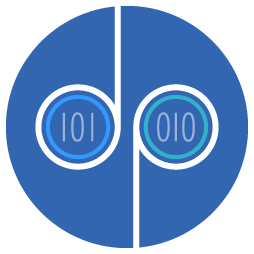The Myth of 2-3% Conversion
December 19, 2007 — By Dr. Pete I've noticed a trend in online marketing and usability: whenever people talk about conversion rates, they all seem to quote an average of 2-3%. The problem is that, over time, I've noticed another phenomenon: no one ever seems to back this up with data. Ultimately, 2-3% conversion seems to be a bit like Bigfoot or, at best, a friend-of-a-friend statistic: "my cousin's sister's hairdresser said she read in Business Week that the average website gets 2-3% conversion."
I've noticed a trend in online marketing and usability: whenever people talk about conversion rates, they all seem to quote an average of 2-3%. The problem is that, over time, I've noticed another phenomenon: no one ever seems to back this up with data. Ultimately, 2-3% conversion seems to be a bit like Bigfoot or, at best, a friend-of-a-friend statistic: "my cousin's sister's hairdresser said she read in Business Week that the average website gets 2-3% conversion."
Of course, some sites get 2% or 3% conversion, but is 2-3% the average across all of the commercial sites on the web? I very seriously doubt it, and here's why:
It Depends What You Measure
From my own client experiences, I've seen that conversion rates can be very contextual. For instance, if I'm testing two versions of a home-page, a well-designed test will only track the visitors who see the home-page (not the ones who land deeper in the site). For obvious reasons, visitors who never see the home-page aren't relevant to the test. The conversion rates I ultimately see after those tests are often in the neighborhood of 2-3%+, but of course, I'm only looking at a subset of the visitors. I'm also typically tracking visitors with a long-term cookie, which reduces the unique visitor count and may artificially inflate conversion rates.It Depends Who Measures It
Even if we could look at all of the conversion rates reported and average them, one big problem is that we can only include people who are actually tracking their conversion rates. I suspect that anyone savvy enough to track their conversion is also focused on improving conversion. If we only count the people who know what their number is, we're almost definitely overestimating.Why Doesn't Google Know?
I was surprised at a recent conference to hear a Google engineer quote the 2-3% conversion rate. If anyone could dig into their data (AdWords, in particular) and pull out a reliable average conversion rate, it's Google. Why don't they? Honestly, I suspect the answer isn't as positive as most people want to hear, which leads us to...High Conversion Sells
Would people spend as much as they do on PPC if they thought that average conversion was more like 0.5%? Probably not. In fairness, they probably also wouldn't spend as much on conversion improvement and usability. Having an achievable goal that sounds nice (and 2-3% sounds pretty good to most people) encourages people who are falling short to pursue conversion-dependent products and services. That's not a conspiracy theory, just an economic fact.How Much is Good Enough?
So, what is the average conversion rate? Maybe a better question is: what's a good conversion rate? Honestly, that depends a lot. If you're paying $1/click on PPC, have an impressive 10% conversion rate, but only make $2 in profit per sale, you're still losing your shirt. Meanwhile, if your website drives leads for a $100,000 piece of equipment, even a 0.1% conversion rate could drive impressive revenues.Consider another question: which of these situations would you rather be in?
- 100 visitors/day converting at 5%
- 500 visitors/day converting at 1%
- 5,000 visitors/day converting at 1%
So, where do we go from here? Well, I think we can start by having more conversations about what helps drive conversion and less about what a "good" or "typical" number is. At the end of the day, your goal is improvement, not chasing some mythical average. If you sell more tomorrow than you did today, you're on the right track.
Home | Who is Dr. Pete? | Are You A Real Doctor? | Can I Hire You? | Archive
©2024 User Effect, LLC.
